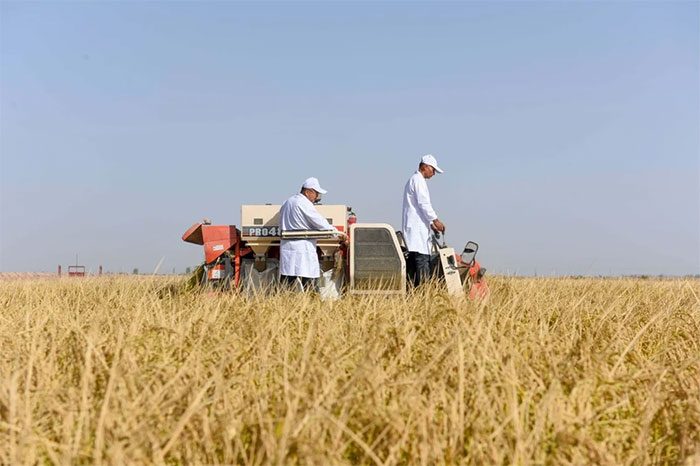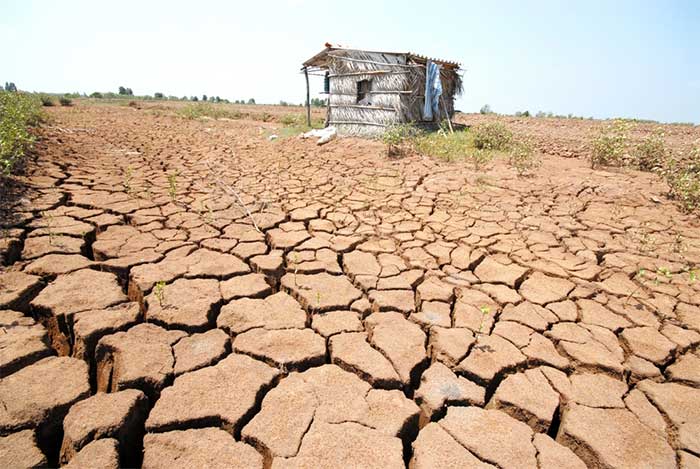Chinese scientists have invented a method to transform saline-alkaline land into fertile agricultural land as Beijing promotes food security.
China ranks third among countries with extensive alkaline land, but about one-third of it has potential for use with better technology and farming methods.

Chinese scientist transforms saline land into fertile agricultural land. (Photo: SCMP).
In a vast wasteland in the ancient village of Wu Yuan, located in the Inner Mongolia Autonomous Region of China, scientist Li Yuqi and his colleagues have discovered a way to convert saline-alkaline areas into fertile agricultural fields, increasing crop yields by nearly one-third.
Typically, alkaline soil contains excessive amounts of salt, also referred to as salinity, which complicates farming. The formation of alkaline soil can occur due to natural processes or human activities, such as wastewater management.
Farmers in Wu Yuan frequently need to irrigate their fields with water from the Yellow River throughout the year to alleviate the salt concentration in the soil. However, the arid climate in this region causes a thick layer of salt to accumulate, making rehabilitation very challenging.
Li Yuqi, a researcher at the Chinese Academy of Agricultural Sciences, has proposed an innovative solution to address the issue of poor soil quality.
He uses straw fibers measuring 5-15 cm in length and lays them flat under the soil at a depth of about 30-40 cm. The straw fibers have properties that prevent salt from rising to the surface. Additionally, he covers the soil with a layer of plastic to retain moisture.
Following this treatment, the salt content in the soil decreased by an average of 36%, and crop yields increased by 30.5%, according to a report from Science and Technology Daily.
To develop this method, scientist Li Yuqi and his team dedicated over a decade to researching the treatment of alkaline soil in various regions of China. They also explored soil restoration methods tailored to different local conditions.

Unsustainable agricultural practices and excessive exploitation of natural resources make the land a victim. (Photo: Getty).
China currently ranks third in the world regarding alkaline land, with approximately 100 million hectares. Among this, about one-third still holds potential for applying soil treatments or advanced farming methods.
President Xi Jinping addressed this issue in his speech in July 2023. He stated: “China possesses extensive alkaline land, and the trend of salinization in agricultural land is worsening in some areas. Applying science to improve alkaline soil for agricultural use is of utmost importance.”
He also described agricultural land as the “lifeblood” of China and called for increased investment in “high-quality” agricultural land.
Ma Wei, a scientist at the Academy of Agriculture, noted that more countries are taking action and pioneering measures to develop and manage alkaline land. He pointed out that China currently has over 40 methods or technologies for treating alkaline soil, placing it among the leading countries in this technology.
According to the Food and Agriculture Organization of the United Nations (FAO), over 833 million hectares of land worldwide have been affected by salinity. This area is equivalent to four times the total territory of India and accounts for approximately 9% of the Earth’s surface.
Regarding the increasing causes of soil salinization, the FAO stated: “Unsustainable agricultural practices and excessive exploitation of natural resources by humans are the main factors.”
Additionally, the growing global population is placing increasing pressure on land, contributing to alarming rates of land degradation worldwide.



















































